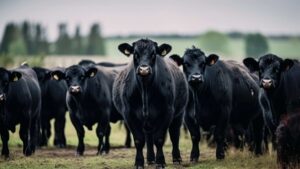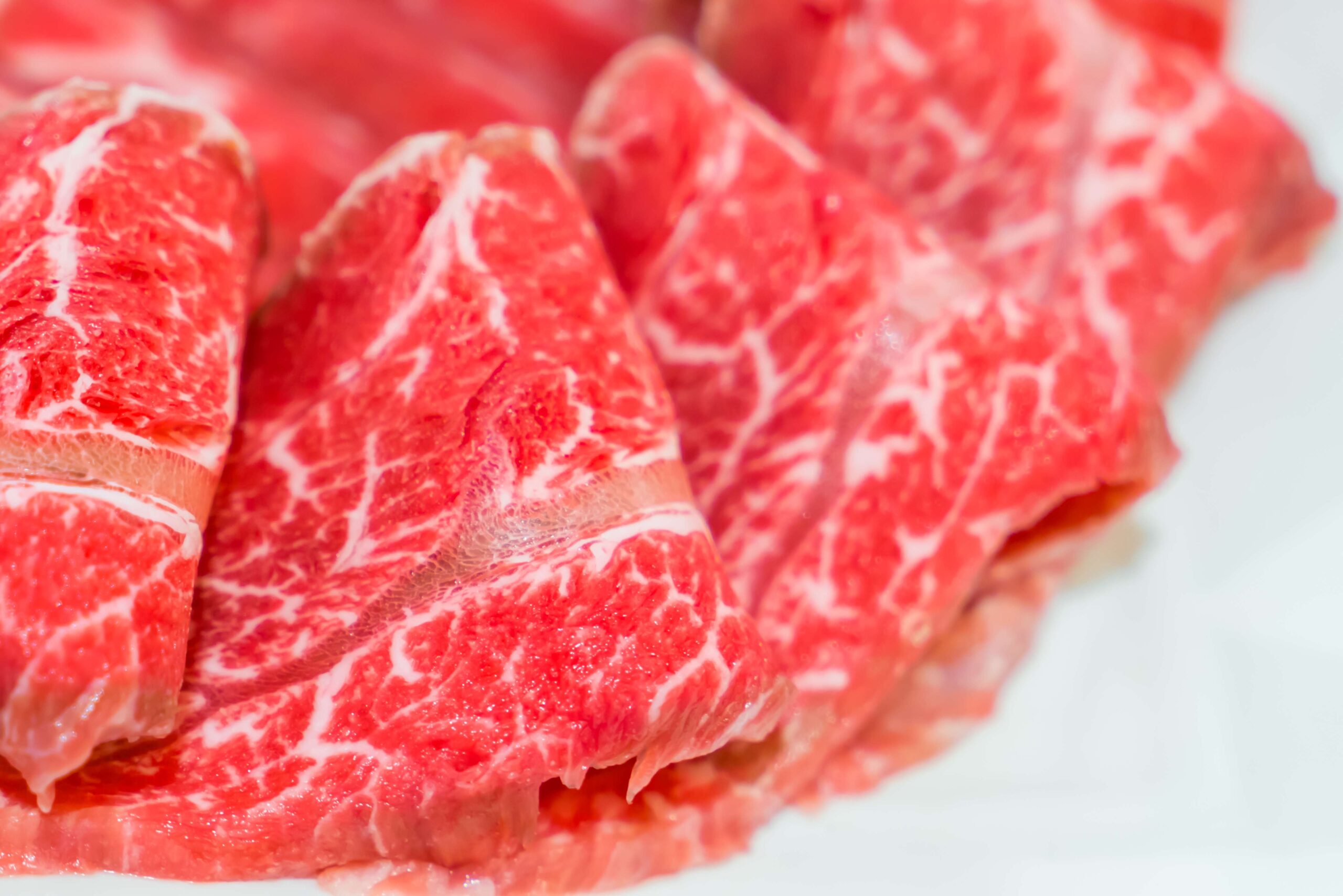Marbling
Wagyu beef is known for its exceptional marbling, which refers to the distribution of intramuscular fat throughout the meat.
The fat in Wagyu beef has a low melting point, giving it a buttery, melt-in-your-mouth texture.
The high marbling also adds flavor and juiciness to the meat.
Tenderness
Due to the fine distribution of fat within the muscle fibers, Wagyu beef is exceptionally tender.
The marbling contributes to a delicate and soft texture, making it highly enjoyable to eat.
Flavor
Wagyu beef offers a rich, intense, and distinct flavor profile.
The intramuscular fat, known as “shimofuri,” contributes to the beef’s unique taste.
The fat adds a depth of flavor that is often described as buttery, nutty, or even slightly sweet.
Production methods
Wagyu cattle are raised with meticulous care and strict production standards in Japan.
The cattle are typically raised in a stress-free environment and receive a special diet that includes high-quality grains, which contributes to the beef’s superior flavor and marbling.
Breed characteristics
Wagyu is a specific breed of cattle, with the most well-known being the Japanese Black cattle (Tajima).
These cattle have genetic predispositions that make them highly suited for producing beef with high marbling and tenderness.
Rarity and exclusivity
Genuine Japanese Wagyu beef is relatively rare and limited in supply.
Strict regulations and breeding requirements are in place to maintain the authenticity of Wagyu beef.
This exclusivity adds to its desirability and higher price point.
It’s important to note that the term “Wagyu” itself refers to Japanese cattle breeds, and not all Wagyu beef comes from Japan.
There are Wagyu cattle being raised in other countries, such as the United States and Australia, which also produce high-quality Wagyu beef, although they may have different characteristics from the traditional Japanese varieties.
Why is Wagyu beef so expensive
Wagyu beef is known for its high price tag due to several factors that contribute to its production, rarity, and unique characteristics. Here are some key reasons why Wagyu beef is expensive:
Genetic Purity
Wagyu cattle are a specific breed originating from Japan, with the most famous being the Japanese Black breed.
These cattle are highly regarded for their genetic purity and unique characteristics, such as intense marbling, tenderness, and flavor.
Maintaining and breeding pure Wagyu bloodlines requires meticulous attention, strict regulations, and careful selection, which adds to the cost of production.
Limited Supply
Wagyu beef production is relatively limited, especially authentic Japanese Wagyu.
The rearing process is time-consuming and requires significant resources.
Additionally, the strict regulations in Japan limit the number of cattle that can be raised and exported.
This limited supply and high demand result in higher prices for genuine Wagyu beef.

Raising Conditions
Traditional methods often involve extensive care and attention, including special diets, controlled grazing, and even massages.
These factors, combined with the time it takes for the cattle to mature, significantly increase the cost of production compared to conventional beef.
Intricate Marbling
One of the defining characteristics of Wagyu beef is its exceptional marbling, which refers to the fine veins of fat evenly distributed within the muscle tissue.
This intricate marbling gives Wagyu beef its distinct tenderness, juiciness, and flavor.
Achieving this level of marbling requires careful breeding, feeding, and management practices, which all contribute to the higher price.
Quality and Taste
The unique qualities of Wagyu beef, including its tenderness, juiciness, and intense flavor, make it highly desirable to many consumers.
The distinctive taste and texture are a result of the genetic predisposition of the cattle, the specific diet they receive, and the care taken throughout the rearing process.
These factors contribute to its premium status and justify the higher price point.
Overall, the rarity, limited supply, specialized rearing methods, and unique characteristics of Wagyu beef contribute to its high cost.
Its reputation as a luxury product, coupled with the superior taste and texture it offers, further adds to its value in the culinary world.

